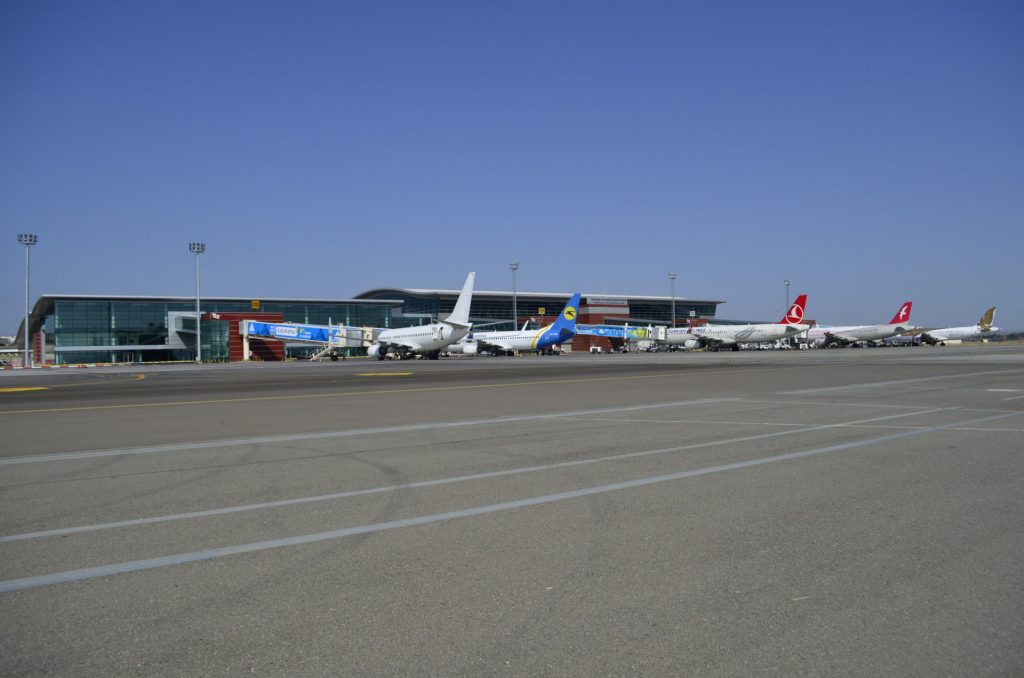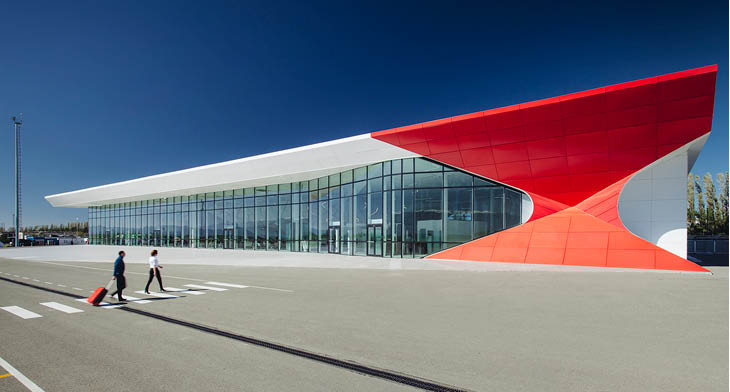Five is the magic number
Kate Aleksidze, CEO, United Airports of Georgia, which hosted the 15th Connect networking forum in Tbilisi last month, tells Chloë Greenbank why traffic across the country’s five airports is on the rise.


Aleksidze has every reason to be happy. When she joined UAG eight years ago, the country’s airports weren’t well known outside of Georgia – one of its smaller bases, Ambrolauri Airport, didn’t even exist – and they certainly weren’t on the radar for many airlines when it came to route development. But that’s no longer the case.
Since joining the state-owned Limited Liability Company (LLC) in 2010, which operates under the umbrella of the Ministry of Economy & Sustainable Development of Georgia, Aleksidze has seen it evolve into one of the country’s biggest companies, which owns all of Georgia’s airports. “When I first joined there were only 50–65 employees, but now we employ over 400 staff across all three of Georgia’s primary airports,” Aleksidze reveals.
“Tbilisi and Batumi are managed by TAV Georgia,” she says, “but UAG manages Mestia and Ambrolauri, which are both small domestic airports, as well as Kutaisi International – which opened in 2012 as the country’s only low-cost airport.”
“While TAV oversees the day-to-day management at Tbilisi and Batumi, we work closely with them on structure and route development at both airports,” she says. “We also oversee aviation security across all Georgia’s airports and have become very active on an international level in terms of growing route development.”
Rise to the top
Despite having a background in law and public administration, Aleksidze couldn’t be more enthusiastic about the industry she has ended up in.
“I started out working for the young lawyers association, where I worked on trafficking, human rights and domestic violence issues, then moved to an anti-corruption group before joining a mining company. I also ran my own business for a while.
“When I was approached to come and join UAG, I had just been tasked with establishing a project management college with BP Georgia,” Aleksidze reveals. “I was in a good job, with a good salary, but I’ve never been one to shy away from a challenge,” she says explaining how the idea of working in a different industry was part of the appeal of going into the airport sector.
“One of my first tasks when I joined in 2010 was to help bring all the airports in the country under the same group as part of UAG,” she says, before adding, “I can’t imagine ever letting go of this sector now.”
Part of the appeal she reveals, is that “airports are like small cities – they have so much going on and they offer a little bit of everything. We even have as many fire trucks as you’d find in most small cities.”
Visa-free travel
In recent years Georgia has seen unprecedented growth of air transport, passengers and the number of tourists. “The liberalisation of visa requirements has undoubtedly made it a lot easier for people to access Georgia, which has in turn made it a more attractive destination for airlines to consider when factoring in new routes,” Aleksidze concedes.
“We have seen a significant increase in the demand for air travel in recent years and we’re always looking at new markets,” she says, noting that the number of tourist visitors from the Gulf region, particularly Qatar and Israel, has increased since visa regulations were relaxed. But there has also been growth in traffic from Russia and Europe, too, particularly with increased services from low-fare carriers such as Wizz Air, which uses Kutaisi Airport as a base.


Tourism is critical for the country’s two domestic airports: Mestia and Ambrolauri. Both serve as hugely valued gateways, facilitating travel to otherwise remote regions. Ambrolauri opened at the beginning of 2017 to facilitate air travel to and from western Georgia and Mestia, Aleksidze tells me, “is beautiful and well worth visiting, but if you go by road from Tbilisi it can take 10 hours to get there, so an airport that’s a 45-minute flight away makes it much more accessible for both foreign tourists and locals.”
“However, it’s hard to make these small airports profitable due to their size and the fact they’re typically served by smaller aircraft, so the government has to subsidise flights to these hubs,” she adds.
Airline incentives and route development
“Building relationships with airlines is important, as is focusing on our infrastructure, but really we need to push Georgian airports on an international level,” Aleksidze says, unveiling that different discounts and promotional packages are offered from the different airports to incentivise new carriers.
“Kutaisi is an incentive in itself because it caters specifically for low-cost airlines,” she says, explaining how it was opened as the first low-cost airport in the region and is focused solely on attracting low-fare airlines to boost tourism development. “But for large airlines that don’t operate a low-fare model there’s also Tbilisi and Batumi, so we can offer that flexibility for airlines.”
She also insists that while hosting events like Connect might be time-consuming and involve a significant additional work load, they are also hugely rewarding in terms of highlighting the lack of connectivity to Georgia and showcasing the country’s airport infrastructure and all it has to offer. “There is still work to be done with our airports, but hosting events like Connect is a great way to show what we can offer and also that we’re open for business,” she states.
While there is no doubt that Aleksidze is a determined and driving force behind the developments and strategic planning across all five of Georgia’s airports, she’s also a warm and empathetic individual who sees her role as much more than just a commercial one.
“I have a great, reliable team and that’s been key to my achievements,” she says, crediting her colleagues with being integral to her success, but she’s also clearly not afraid to muck in when needed. “I’m involved in all aspects of running an airport and if there’s a flight delay I’ll take it personally,” she says, recalling how once when a passenger was left stranded by a flight delay she paid for a new ticket so the passenger could get her child to hospital.
“I know I can’t give that level of personal touch to each and every passenger, but as much as I can, I will,” she says.
I can’t help but think that the level of care and compassion with which Aleksidze applies herself to her role as CEO of UAG is testimony to the traditional Georgian hospitality for which the country and its people are famed. And it’s also a strong indication that those that travel through the country and its airports can expect a warm welcome with Aleksidze at the helm.



